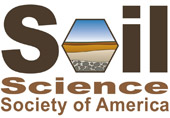Effect of Long-Term Application of Fertilizers and Manures on Methane Emission during Rice Cultivation.
See more from this Division: OralSee more from this Session: Climate Change Adaptation and Mitigation 2B
Effect of long-term application of fertilizers and manures and on methane emission during rice cultivation
Author :- Harmanjit Singh Dhadli, Dr. B. S. Brar, Fatehjeet singh
Abstract
Long-term fertilizer experiments provide us useful information about the effects of continuous cropping and nutrient application on the soil organic carbon dynamics. Methane emission during rice cultivation is a major contributor towards global green house gas emissions from agriculture. A long-term fertilizer experiment under rice-wheat cropping system that has been in progress since 1996 at Punjab Agricultural University, Ludhiana, India, was selected to study the effect of continuous application of chemical fertilizers in conjunction with green manure, farmyard manure and straw on methane emission from rice fields. Methane fluxes varied considerably during the rice season under various treatments. Methane fluxes were the highest under straw application treatment and varied from 0.05 to 2.17 mg m-2 h-1 and were the lowest where nitrogen alone was applied. Cumulative methane emission was the highest under straw application treatment, followed by control treatment. High methane emissions in control could be attributed to higher excretion of root exudates by plants under nutrient stresses.
See more from this Session: Climate Change Adaptation and Mitigation 2B
